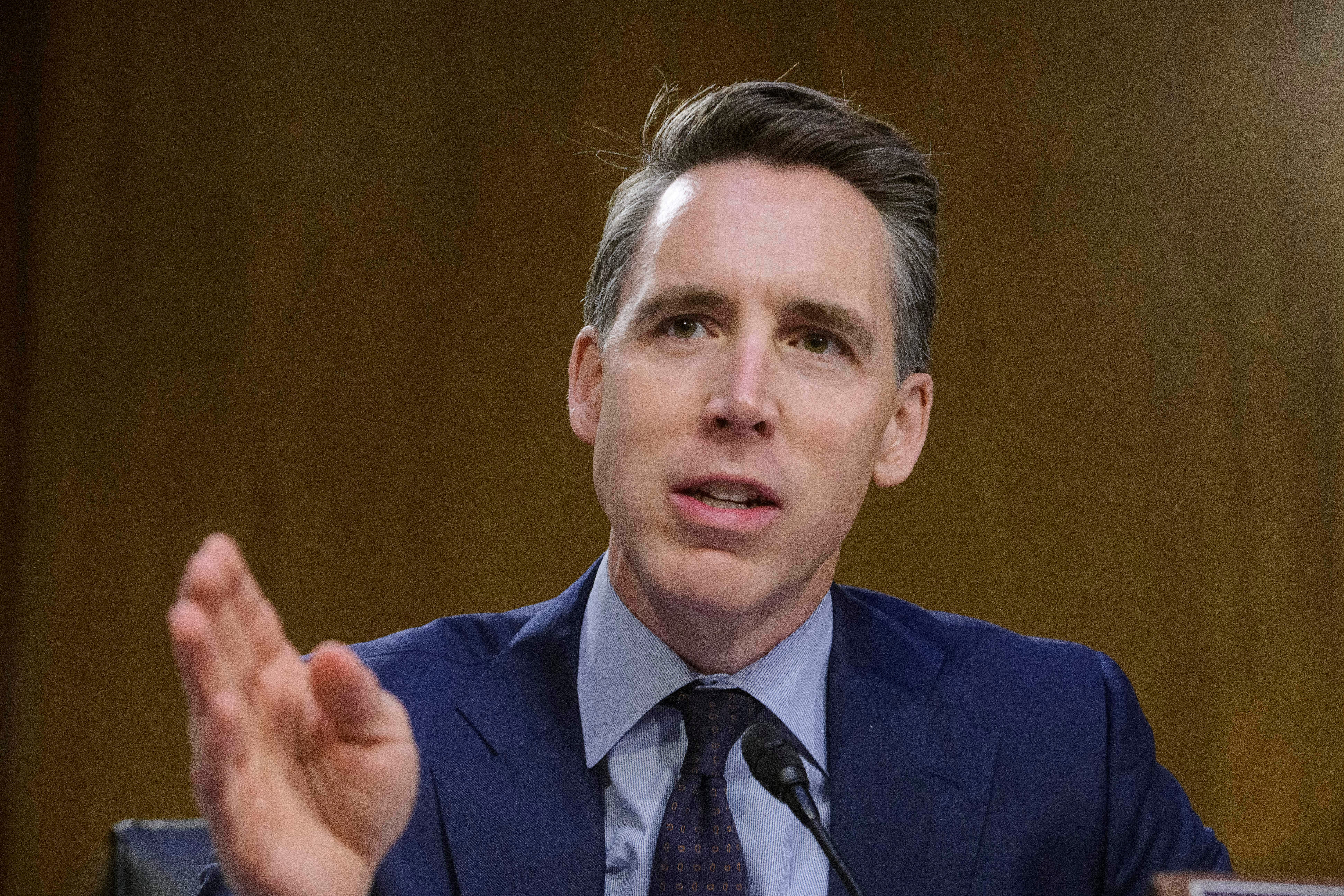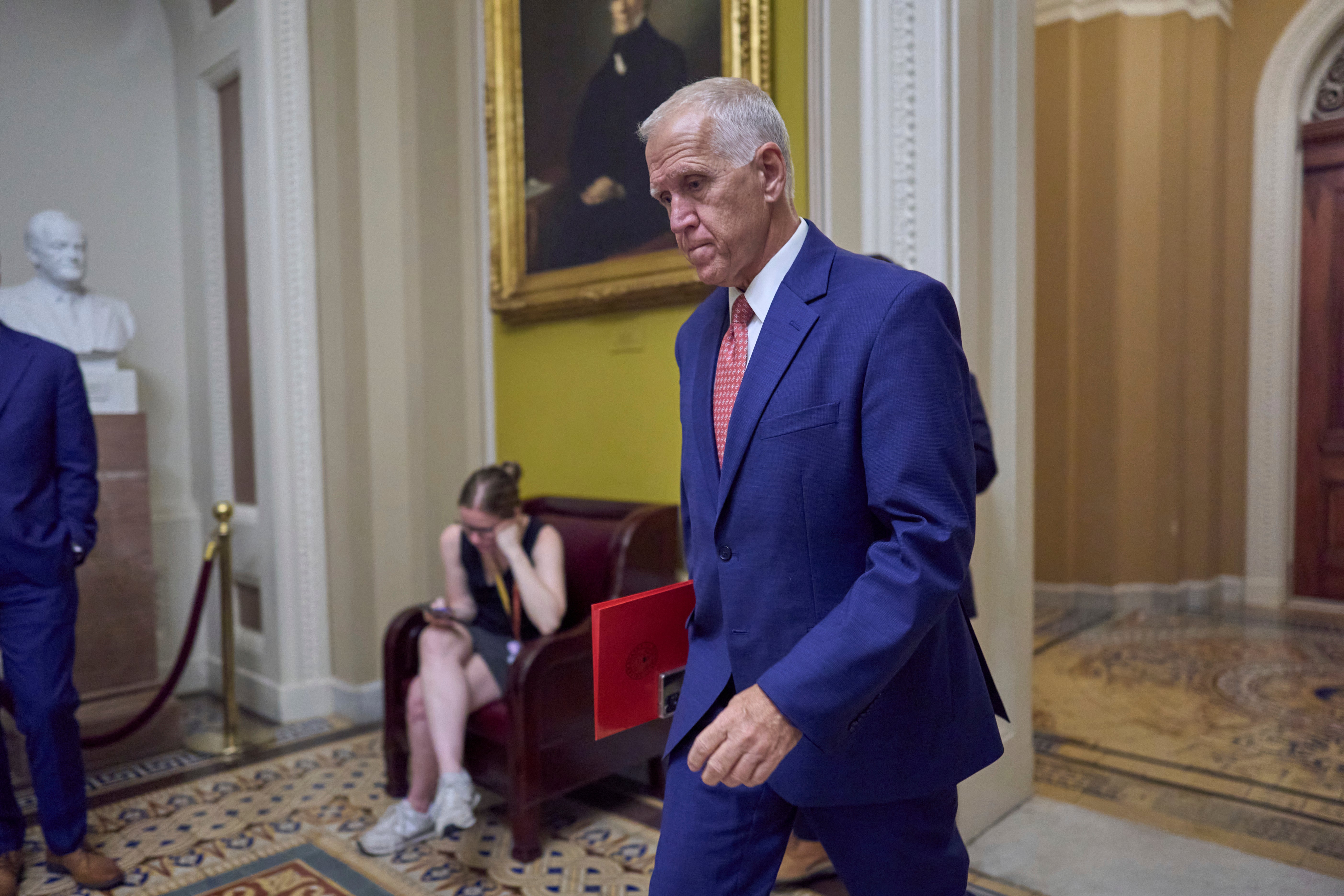Senate Republicans might miss their self-imposed deadline to pass President Donald Trump’s “One Big, Beautiful Bill” because they remain too divided over potential cuts to Medicaid.
“There’s too many Medicaid cuts in there,” Sen. Josh Hawley of Missouri told The Independent.
Hawley and other Republicans from states with large rural populations fear a proposed limit on states’ ability to tax health care providers will force states to cut their Medicaid programs.
The American Hospital Association has warned that cuts to Medicaid could be “devastating” for rural hospitals, which typically have larger shares of patients without health insurance.
Budget analysts argue that billions of dollars in reduced federal Medicaid spending could result in millions of uninsured Americans.

Poll after poll shows that the bill remains incredibly unpopular among voters.
But Sen. Roger Marshall of Kansas blamed the press for the bill’s unpopularity.
“They certainly have cornered the bill into a little piece,” Marshall told The Independent. “So I think it’s our job is to present it piece by piece and make our case to the American public.”
Republicans on the Senate Finance Committee circulated a memo about a potential $15 billion stabilization fund for rural hospitals in an attempt to win over skeptical Republicans, Punchbowl News reported.
But “that wouldn’t be sufficient,” Sen. Thom Tillis of North Carolina told The Independent.
Tillis, who faces a difficult re-election in a state Trump barely won, said Sen. Susan Collins, a Republican from a state with a large rural population, was crafting another proposal “more reflective of the need” of rural hospitals.
Hawley said he wanted to take a look at the proposal before throwing his support behind it.
“I want to be sure that it's actually going to flow directly to rural hospitals,” he said. “It's going to help hospitals in my state and replace a good portion of the funds that we’re losing because of the provider tax, the ill-considered provider taxes.”
Trump has said he wants the bill to be passed by the Fourth of July and called on Republicans to stay in Washington until the bill’s passage.
“To my friends in the Senate, lock yourself in a room if you must, don’t go home, and GET THE DEAL DONE THIS WEEK. Work with the House so they can pick it up, and pass it, IMMEDIATELY,” Trump wrote on Truth Social on Tuesday. “NO ONE GOES ON VACATION UNTIL IT’S DONE.”

The bill seeks to extend the 2017 tax cuts that Trump signed during his first term and increase spending for immigration enforcement, the military and oil exploration. Trump’s biggest supporters in the Senate say they would vote for a motion to proceed.
Sen. Bernie Moreno of Ohio told The Independent that he would vote on a motion to proceed on the bill so it could pass this weekend.
“Absolutely,” he said. “Not just a ‘yes’ but a ‘hell yes.’”
But not everyone is as sure.
“Do we have a bill yet?” Sen. Ron Johnson of Wisconsin, a major critic of the legislation, told The Independent. “I think there's being pressure applied.”
Republicans, who have only 53 seats in the Senate, plan to sidestep a Democratic filibuster by passing the bill using the reconciliation process, which allows a bill to pass with a simple majority if it relates to the budget.
Stephen Miran, the Trump administration’s chair of the Council of Economic Advisers, addressed the criticisms from moderates in the Senate.
“We don’t really have the in-depth analysis of Medicaid in this paper, or of health insurance and healthcare markets in this paper, it is a super important area we’ve done some work on in the past,” Miran told reporters.
Miran said that failing to pass the bill could result in 9 million people losing their health insurance because of the economic consequences.
“We want to avoid the biggest tax hike in history,” Miran said. “We want to avoid plunging the economy into a recession as a result thereof. And we want to avoid te approximately 9 million sort of just flat-out losses of health insurance across the economy that occurs as a result of that.”
But even if Senate Republicans manage to pass the bill, it would still need to go back to the House of Representatives, where many GOP members might want to change significant parts of the legislation.
Sen. Lindsey Graham of South Carolina, the chairman of the Senate Budget Committee, said Republicans need to act quickly.
“One thing we can’t do is punt,” he told The Independent.

 4 hours ago
3
4 hours ago
3








